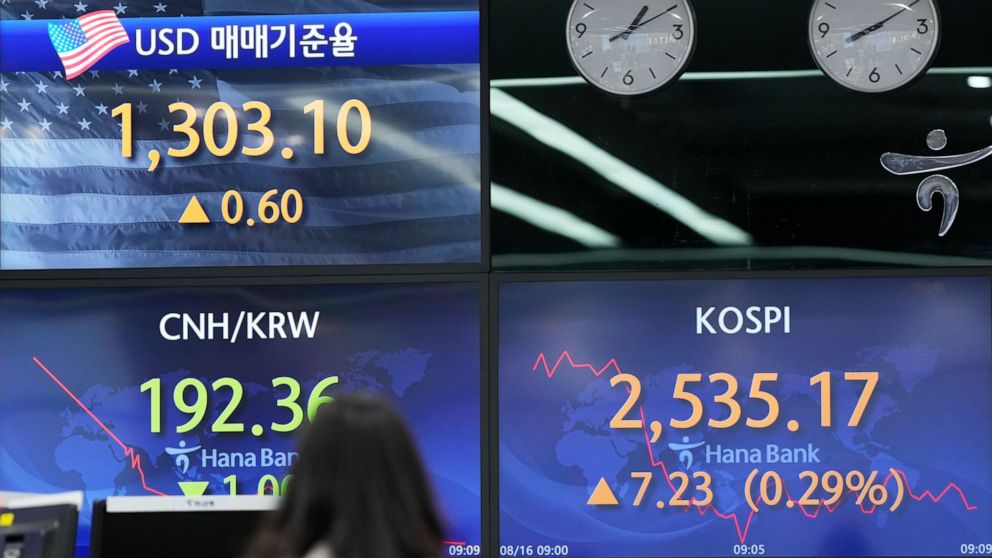TOKYO — Asian shares mostly rose Tuesday after a rebound on Wall Street, despite regional investor risks reflected in negative economic data out of China.
The benchmark in Tokyo was little changed, erasing earlier gains, but indexes in South Korea and Australia gained. Hong Kong’s benchmark slipped, while Shanghai shares rose.
Falling oil prices are one positive factor for the region. In Japan, recent economic data have shown a recovery, but high rates of COVID-19 are fueling fears people will hold back on travel and other economic activity.
Some analysts say stock prices haven’t properly reflected real risks.
“It doesn’t seem to matter what the news is, there is just a huge appetite to buy stocks. And to keep buying,” said Clifford Bennett, chief economist at ACY Securities. “Talk of the bottom having already been priced in seems somewhat premature. Should the market turn down again after all this long positioning, it will fall with a thunderous impact. Buyers beware.”
Japan’s benchmark Nikkei 225 was little changed to finish at 28,868.91. South Korea’s Kospi rose 0.3% to 2,534.27. Australia’s S&P/ASX 200 added 0.6% to 7,105.40. Hong Kong’s Hang Seng reversed course and was down 1.5% at 19,739.08, while the Shanghai Composite gained 0.2% to 3,281.28.
Stocks on Wall Street bounced back and closed higher, extending the market’s recent winning ways as investors look ahead to several updates from retailers this week.
The S&P 500 rose 16.99 points, or 0.4%, to 4,297.14. The Dow added 151.39 points, or 0.5%, to 33,912.44. The Nasdaq gained 80.87 points, or 0.6%, to 13,128.05. The Russell 2000 rose 4.73 points, or 0.2%, to 2,021.35.
The market got off to a bumpy start as traders reacted to news overnight that China’s central bank cut a key interest rate, acknowledging more needed to be done to shore up its economy. The move is the latest warning for markets already on edge over record-high inflation and fears about recessions in the U.S. and elsewhere.
China is the world’s second-largest consumer of crude oil, so the news weighed on energy prices. U.S. crude oil prices slumped 2.9% on worries about the global economy and weighed heavily on energy stocks.
In Tuesday’s trading, benchmark U.S. crude fell 88 cents to $88.53 a barrel. Brent crude, the international standard, lost $1.18 to $93.92.
Treasury yields fell as a report showed manufacturing in New York state unexpectedly contracted. The yield on the 10-year Treasury, which banks…
Click Here to Read the Full Original Article at ABC News: Business…

